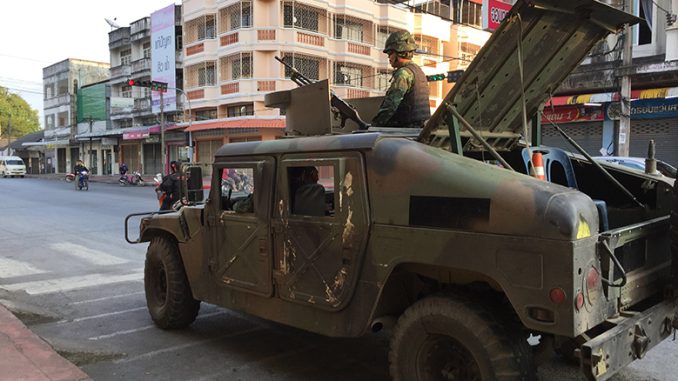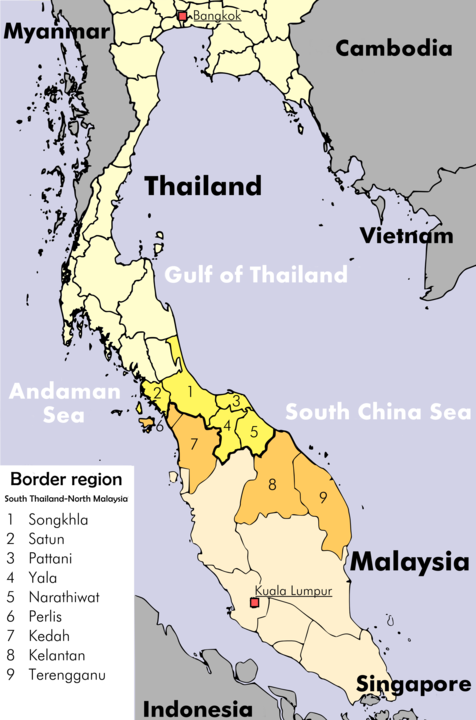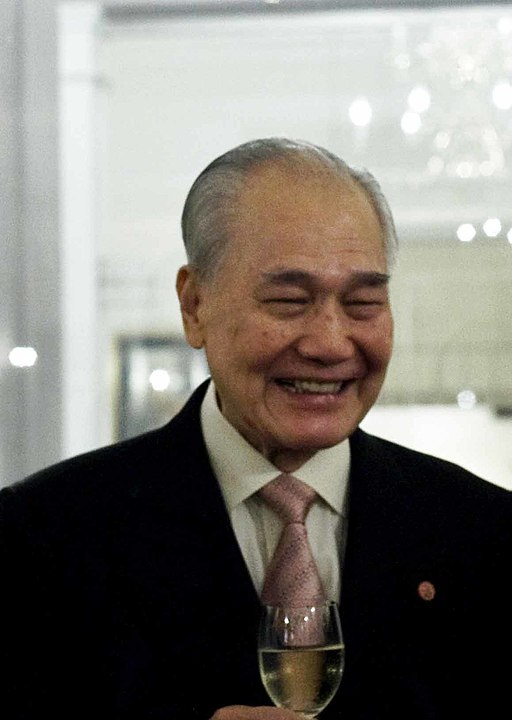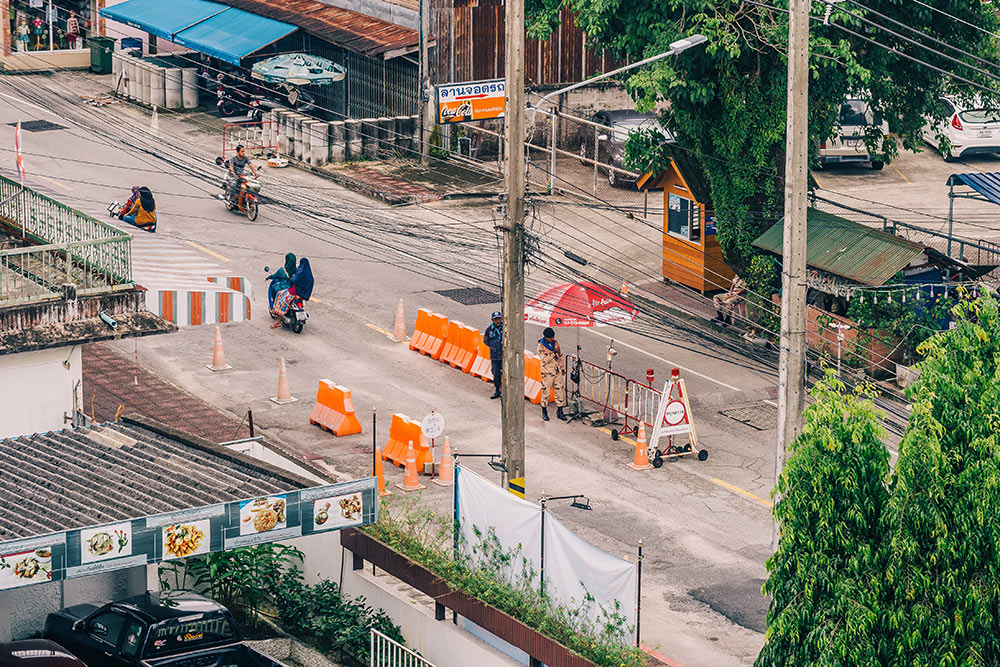
“The big thing that we know from John Stuart Mill is that democracy is government by discussion, and, if you make discussion fearful, you are not going to get a democracy, no matter how you count the votes.”
– Amartya Sen (The New Yorker Interview, 2019) 1
The last day of the Weimar Republic was when the Reichstag (parliament) building burned on the night of February 27, 1933. As Benjamin Carter Hett puts it, it was the last night of German democracy. 2 The Reichstag fire benefited the NSDAP (Nazi party). They claimed that the communists from foreign countries plotted the arson. The incident led NSDAP to win the election on March 5, 1933, which enabled the Nazi party leader, Adolf Hitler, to rise to power. With the approval of the Reichstag, Hitler successfully passed the 1933 Enabling Act on March 23, 1933. 3 The Act gave Hitler the right to make laws that gave Hitler such complete control to destroy all of his opponents. A similar sequence of events transpired in the Philippines in 1972. Although President Ferdinand Marcos second term would expire in 1973, he was unwilling to step down. 4 An opportunity for Marcos arise in 1972 when about twenty series of explosions occurred in various locations in central Manila. Marcos seized that moment to declare Proclamation no. 1081 on September 23, 1972. In one day, Marcos’s government arrested approximately 8,000 individuals, including 4 senators, and shut down most major media outlets. 5 Marcos managed to hold power for another fourteen years.

When it comes to securing the nation state, the 2005 Emergency Decree in Thailand’s Deep South is remarkably similar to the 1933 Enabling Act and the Proclamation no. 1081. The battle between the Thai security authorities and the insurgent groups in the southernmost provinces of Thailand has been ongoing for decades. The special law took place in Thailand’s Deep south after unidentified assailants raided a military camp in Narathiwat province on January 4th, 2004. In response, Thaksin’s government declared martial law. It was literally the last day of democracy in Thailand’s Deep South. To make matters worse, the Krusae Mosque incident and the Takbai Massacre in 2004 6 led to the enactment of the Executive Decree on Public Administration in Emergency Situations. The decree took effect on 19 July 2005 in Narathiwat, Pattani and Yala. It has been renewed every three months until this day. The Section 17 of the Emergency Decree grants law enforcement officers’ immunity from prosecution for any action committed in the line of duty. While Martial Law allows state authorities to detain suspects up to seven days, the Emergency Decree empowers the authorities to extend the detention period up to thirty-seven days. 7 The 2005 Emergency Decree is the perfect legal weapon for security officers to detain, interrogate and abuse suspects even without concrete evidence. 8 The infinite security checkpoints throughout the region and the relentless monitoring by the security officers create an environment of distrust between the Malay Muslims and the state authorities. For instance, in 2017, the Internal Security Operations Command (ISOC) Region 4 filed a charged against three prominent Human Rights activists because they filed a complaint report of 54 cases of torture by the military. 9 On September 28, 2019, twelve opposition politicians and academics were also charged because they criticized the military. 10 Bae Ma, a Pattani local politician told me, “Who said that Thailand is a democratic country? A country with an emergency decree and martial law for the past ten years in the south, tell me…is that democracy?” 11

Many research studies conducted over the past fifteen years by academics, NGOs, civil societies, media, Thai legal and security experts, and human rights advocates all conclude that the military officers exacerbate violence in the southernmost provinces of Thailand by using the emergency decree as their legal shield. Anand Panyarachun, the chairman of the National Reconciliation Committee (NRC), pointed out that having an Emergency Decree along with Martial Law grants security officials a “license to kill”. 12 The most recent case of Abdullah Isa-Musa confirms the excessive usage of military power under the protection of the Emergency Decree. On July 20, 2019, Abdullah was arrested under the allegation that he was an insurgent cell leader. But he was found in a comatose state the next day and pronounced dead at the hospital a month later. It is suspected that the military used a water-boarding scheme on Abdullah while in the military custody. The military and the Prime Minister, Prayut Chan-o-cha denies the torture allegation, which anger the people in the Deep South. 13
Levitsky and Ziblatt (2018) argue that demagogues use crisis as a justification to declare a state of emergency so that they can remain in power which is deadly for democracy. 14 In the case of Thailand, the Thaksin civilian government might have declared martial law and made the emergency decree, but the military that took control after him continue to make best use of it as a tool for civil control. Thaksin’s government was ousted by the military in 2006. His sister, Yingluck was also ousted by the military coup in 2014. Thaksin was gone, but the martial law and the emergency decree remained. In contrast to what Levitsky and Ziblatt said that demagogues use legal weapons as a source to secure their power, emergency decree in Thailand works the other way around, it outlived five civilian governments and two military governments. 15 What does this tell us? The answer is the military organization has always dominated the policymaking in the southernmost provinces of Thailand. Although several studies by academic researchers and Thai legal experts proposed a policy recommendation to governments that the emergency decree shall be repealed, the recommendation always get ignored. In 2010, a research team from Prince of Songkhla University (of which I was a member) conducted extensive research on the effect of the emergency decree to violence in the Deep South of Thailand. Our research team proposed a policy recommendation to Abhisit Vejjajiva’s government that the emergency decree in fact worsen the situation in the Deep South, so it needs to be revoked. I still remember until this day that during our presentation to the cabinet ministers, Gen. Prawit Wongsuwan, the Minister of Defence at the time, shook his head like a head shaking doll the whole time when we were presenting. At the end, Prime Minister Abhisit completely dismissed our research findings. He told us that the government will renew the emergency decree for another three months.

The conflict resolution for Thailand’s Deep South is to restore democracy. To mitigate violence is to immediately repeal the Emergency Decree. Once the emergency decree is revoked, democracy will emerge, and the peace talks can resume productively. The peace-talks between the Thai security authorities and the representatives from the insurgency groups would be more effective if the Thai military can agree to reduce the excessive usage of the military power by ending the emergency decree. In Amartya Sen words, “Democracy isn’t an automatic remedy of anything. It isn’t like quinine to kill malaria. Democracy is a way of enabling.” 16 Democracy is certainly a way of enabling peace talks to succeed in Thailand’s Deep South.
Daungyewa Utarasint
Daungyewa Utarasint is a researcher for CSCD (Center for Conflict Studies and Cultural Diversity), Prince of Songkla University, Pattani Campus
Banner image: 2016 photo of soldier in armored vehicle patrolling the streets of Yala city in Thailand. Yala is one of Thailand’s deep south provinces that has conflict and insurgency for more than a decade. Photo: iisariya / Shutterstock.com
Notes:
- Isaac Chotiner. (October 6, 2019). “Amartya Sen’s Hopes and Fears for Indian Democracy.” The New Yorker. Retrieved from: https://www.newyorker.com/news/the-new-yorker-interview/amartya-sens-hopes-and-fears-for-indian-democracy?utm_medium=social&utm_source=facebook&utm_brand=tny&mbid=social_facebook&utm_social-type=owned&fbclid=IwAR1zNDVv0_EcKP6zVHywOvPtX93MZRPK7EEchC3FgygKa2abu4BAEcFJ_Ac) ↩
- Benjamin Carter Hett. (2018). The Death of Democracy: Hitler’s Rise to Power and the Downfall of the Weimar Republic. Henry Holt: New York, page 3. ↩
- BBC Bitesize. “Hitler takes Political Control 1933 – 1934”, retrieved from: https://www.bbc.co.uk/bitesize/guides/zxs2pbk/revision/3 ↩
- Steven Levitsky & Daniel Ziblatt. (2018). How Democracies Die: What History Reveals About our Future. Crown: New York, p 93. ↩
- The Official Gazette. Infographic: The day Marcos declared Martial Law. Retrieved from: https://www.officialgazette.gov.ph/featured/infographic-day-marcos-declared-martial-law-september-23-1972/ ↩
- On 28 April 2004, the Thai military gunned down 32 suspected militants who were hiding inside the Kruesae Mosque. On the same day, almost 100 militants carried out attacks against police checkpoints throughout the Deep South, resulting in the death of 108 militants. As for the Takbai massacre, on 25 October 2004, the villagers in Takbai district protested against the police at the Takbai police station to release six local men whom the villagers believe were innocent. The peaceful protest turned into a clash between the villagers and the police. Police shot seven men and arrested 78 men. These men were suffocated in the heat while being detained at the military camp. The Thai military were heavily criticized from their harsh crackdown in both of the incidents. ↩
- Isranews Agency. (January 24, 2014). “Comparing Emergency Decree between Bangkok and the Southernmost provinces of Thailand” [ผ่า “พ.ร.ก.ฉุกเฉิน” เทียบคุมม็อบเมืองกรุง-ชายแดนใต้ – In Thai]. Retrieved from: https://www.isranews.org/isranews/26796-law_26796.html ↩
- International Crisis Group, Report 105/Asia (November 18, 2005). “Thailand’s Emergency Decree: No Solution.” Retrieved from: https://www.crisisgroup.org/asia/south-east-asia/thailand/thailands-emergency-decree-no-solution ↩
- Human Rights Watch. (March 7, 2017). “Thailand: Defamation Cases Dropped Against Activists Permit Unhampered Rights Monitoring in South.” Retrieved from: https://www.hrw.org/news/2017/03/07/thailand-defamation-cases-dropped-against-activists ↩
- Teeranai Charuvastra. (October 4, 2019). “Army filed Sedition Charges Against Opposition Politicians, Academics.” KhaoSod English. Retrieved from: http://www.khaosodenglish.com/politics/2019/10/04/army-files-sedition-charges-against-opposition-politicians-academic/ ↩
- I interviewed Bae Ma, a Pattani provincial politician back in 2012 when I conducted a fieldwork research. ↩
- International Crisis Group Report 105/Asia (November 18, 2005). “Thailand’s Emergency Decree: No Solution.” ↩
- Nontarat Phaicharoen and Mariyam Ahmad. (August 27, 2019). “Thai PM Rejects Torture Allegations in Rebel Suspect’s Death.” Benar News. Retrieved from: https://www.benarnews.org/english/news/thai/Rebel-suspect-death-08272019162314.html ↩
- Steven Levitsky & Daniel Ziblatt. (2018). How Democracies Die: What History Reveals About our Future. Crown: New York, p 94. ↩
- The list of Thai Prime Ministers from the day that Thaksin’s government passed the Emergency Decree (2005) until today are as follows: Thaksin Shinawatra’s government (2001 – 2006); Gen. Surayud Chulanont (military government, 2006 – 2008); Samak Sundaravej’s government (2008); Somchai Wongsawat’s government (2008); Abhisit Vejjajiva’s government (2008 – 2011); Yingluck Shinawatra’s government (2011 – 2014); Gen. Prayut Chan-o-cha (military government, 2014 – 2019). ↩
- Isaac Chotiner. (October 6, 2019). “Amartya Sen’s Hopes and Fears for Indian Democracy.” The New Yorker. Retrieved from: https://www.newyorker.com/news/the-new-yorker-interview/amartya-sens-hopes-and-fears-for-indian-democracy?utm_medium=social&utm_source=facebook&utm_brand=tny&mbid=social_facebook&utm_social-type=owned&fbclid=IwAR1zNDVv0_EcKP6zVHywOvPtX93MZRPK7EEchC3FgygKa2abu4BAEcFJ_Ac) ↩
